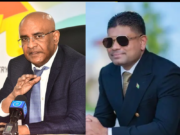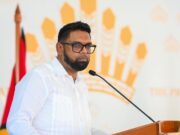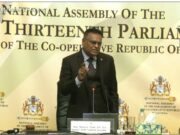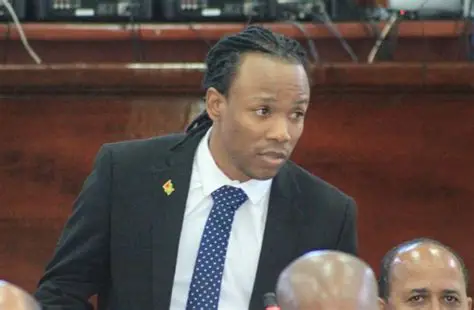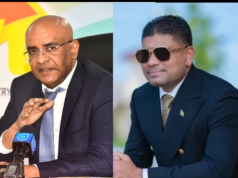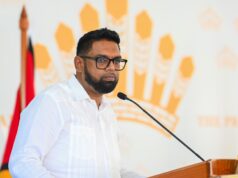With the A Partnership for National Unity (APNU) losing its grip on traditional strongholds, this must be seen as a catalyst for reform, says the party’s former member, Jermaine Figueira.
The results of the 2025 General and Regional Elections show the Aubrey Norton-led party suffering a massive loss of support in Regions Four and 10. The party has since called for a recount. The We Invest in Nationhood (WIN) party, led by U.S.-sanctioned Guyanese Businessman, Azruddin Mohamed, led the call for the recount, alleging irregularities and expressing disbelief that the ruling People’s Progressive Party/Civic (PPP/C) was able to capture the district. His call comes even as a majority of the votes his party received came from APNU strongholds, including Mocha, Sophia and Albouystown.
Figueira, in a recent missive to the media, said that elections serve as both closure and renewal. He said that the 2025 elections sent a clear and resounding message that President Irfaan Ali and his party won decisively, capturing eight of the ten regions, including territories once deemed untouchable by the opposition. This was not a “fluke”, he said, adding that the feat was the product of promises kept, development delivered, and a vision of unity that resonated across the country.
“For the opposition, disbelief has been swift. To lose not only nationally but in historic strongholds such as Regions Four and Ten was unexpected and unprecedented. The calls for recounts, while understandable within procedure, cannot mask reality: the outcome, quite frankly, is settled. The people of Guyana have spoken,” the former APNU Parliamentarian expressed.
He added that political history is full of shifting allegiances and evolving landscapes, pointing out that today’s governing party may one day sit in opposition, just as today’s defeated parties may rise again.
“But for that cycle to remain intact, every player must respect the sovereignty of the electorate. By all accounts, Guyana’s 2025 elections were free, fair, transparent, and peaceful. Our people voted without fear. Observers, international and local, confirmed the credibility of the process. To challenge such an outcome without evidence is not only reckless but dangerous; it undermines faith in democracy itself,” he warned.
According to Figueira, acceptance is not a choice but an obligation.
“Political authority flows from the ballot box, and to deny it is to deny the very people one aspires to serve. Another truth that should be accepted, defeat, though bitter, is not the end. Around the world, political parties have used moments of loss as opportunities for renewal. They have restructured, reconnected with the people, and returned to power stronger than before,” he stressed.
He added that “the opposition’s setbacks in Regions Four and Ten should be treated as catalysts for reform, not excuses for denial. By regrouping and respecting the results, opposition parties can prepare themselves to be more effective in the future both as a loyal opposition and as potential leaders down the road.”

